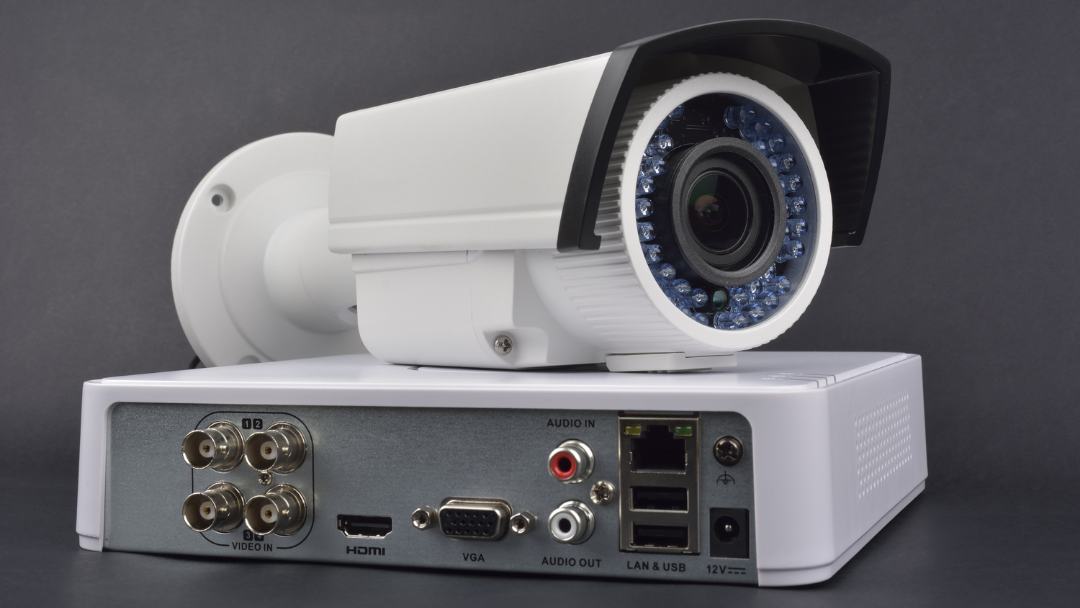With the combination of digital and physical worlds more prevalent than ever, large enterprises are taking advantage of surveillance technologies like, network video recorders, artificial intelligence (AI), machine learning, video analytics; likewise small/medium-sized enterprises aren’t behind in this race. Adapting to technological advancements such as smart analytics is becoming increasingly common.
Getting smaller businesses on board with surveillance devices that offer edge analysis can be a huge contribution to their success by giving them an opportunity for better monitoring and security at multiple levels: IP cameras at the camera level or Network Video Recorders at the NVR level. Let us learn about how network video recorders have made surveillance smarter.
What is a Network Video Recorder?
A network video recorder is a type of digital video recording equipment that can be plugged into a network. There are many types of NVRs, but they have one thing in common: they’re designed to record and playback at the network level. This means they’re not only able to record at the network level, but they’re also able to play back video footage from the network. With the growth of the network video recording industry, the differences between these devices are becoming less important, as both types are able to record and playback at the network level.
While the technology behind network video recording is simple, the benefits of using one are numerous. Network video recorders are especially useful for businesses that need to keep track of their assets 24/7. You can also use a network video recorder to ensure security and avoid costly damages from vandals and other hazards. Networks are always changing, however, which can make it difficult to find the right network video recorder. To help you choose the right network video recorder, keep reading to learn more about what they are, how they work, and the benefits of using one.
How do Network Video Recorders Work?
Perhaps the most important aspect of network video recorders is their ability to record at the network level. By recording footage at the network level, a network video recorder can record traffic that travels through a router, which means it can record footage from any network. Network video recorders can also work with existing security equipment and more. If you already have security cameras around your business, you can use a network video recorder to record footage from those cameras.
While both security cameras and network recorders can help you monitor your network, network video recorders are particularly useful for keeping track of your employees or clients. If you have employees who travel, you can use a network video recorder to track their movements and ensure they’re working when they’re supposed to be. You can also use a network video recorder to keep tabs on customers. If you have customers who frequently come to your business, you can use a network video recorder to keep track of their visits and ensure everything runs smoothly.
Scalability
New-Age Video Recorders are coming with a higher channel capacity and the flexibility to monitor multiple locations centrally. However, they need support from other devices in order to work correctly. If you’re an enterprise that is running your business on a global scale or has plans of expanding it in different places, then these features would be ideal for you if used strategically. So look for solutions that feature capabilities that will let enterprises monitor multiple locations by connecting network video recorders with each other into master and slave hierarchy so as to decrease the time consumed when making decisions and acting instantly.
Recording Retention
Modern network video recorders are offering the choice to select how many days of footage will be relevant and stored. This results in optimum utilization of storage. For instance, if there is less activity going on at a particular premise, then you can decide which number of days need to be recorded and saved for that location- like the reception desk where people’s movements are high. Small businesses can save their resources by making surveillance smarter!
Adaptive Recording
Higher-resolution footage requires a higher bandwidth speed to achieve the details of the scenario. This leads to increased storage consumption, but with each passing day, surveillance is getting smarter. Network video recorders are coming up with modernistic features like adaptive recording; on enabling this feature, when there’s no movement in the scenario and it doesn’t require filming any more then network video recorder drops its data rate automatically and vice versa as a result of which both bandwidth optimization and storage optimization occur which eventually results in cost savings.
Interoperability
Small and medium enterprises are constantly looking for new ways to upgrade their security. One way of doing this is by shifting from one brand to another, but it can become expensive. Devices that aren’t designed with open platforms limit the services they offer businesses- only working with devices developed by the same company. But modern surveillance technologies make video recorders more flexible in that they work as well on third party devices as on original ones made by any given company – making it easier for businesses to shift over without a lot of effort or expense
Conclusion
Getting the right recorder for your business needs may seem like a time-consuming process as there are so many products on the market which feature an array of different functions and at high prices too! But if you find the right technology vendor they can help educate and guide you to the correct solution for your business.
Last Updated on August 2, 2022 by Josh Mahan




